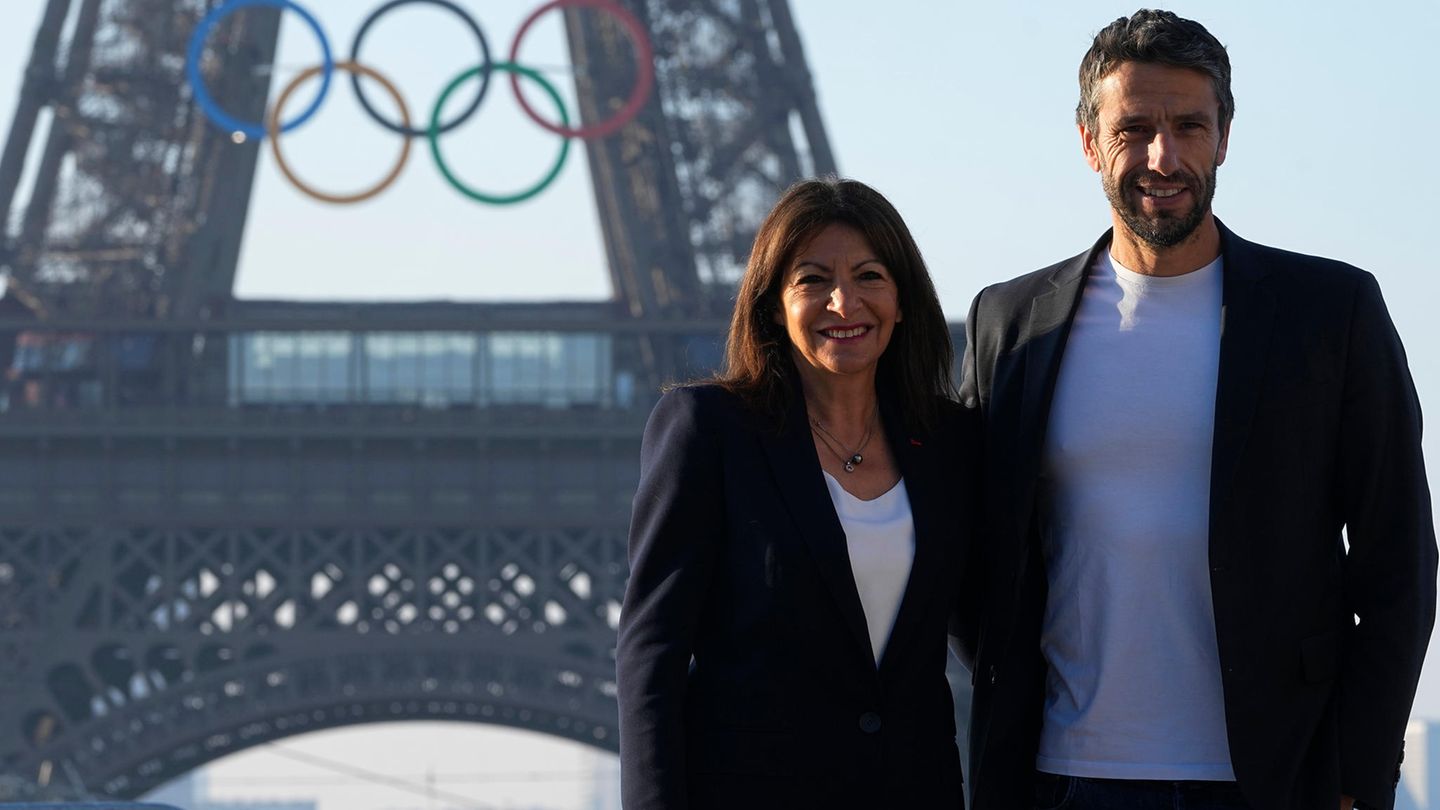Trembling until the end: Is the water of the Seine clean enough for Olympic swimming competitions? The Paris Olympic chief and the mayor want to prove this by jumping into the river.
In Paris, just before the start of the Olympic Games, it is one of the topics of conversation that people tend to mock and gloat about, while the athletes affected are tearing their hair out. Will the Seine in the French capital really be clean enough to hold swimming competitions as planned? Or was the 1.4 billion euros invested in improving the river’s water quality a waste of money?
While laboratory tests still indicate problems in some areas, the mayor of Paris, Anne Hidalgo, and the Parisian head of organizing the games, Tony Estanguet, want to jump into the Seine together and prove that the water is safe. They are accompanied by the prefect of the capital region Île-de-France, Marc Guillaume. France’s sports minister, Amelie Oudea-Castera, had already stolen the show from the illustrious swimming group on Saturday, swimming a lap in the river in a wetsuit.
Olympic competitions in the Seine are a matter of prestige
Anyone looking from the banks or bridges into the murky waters of the Seine would not really want to swim in it, but that is not the point. The Olympic organizers and France are hoping for unforgettable images when the swimming competitions are watched by millions of people on TV and from the banks, against the magnificent backdrop of the city.
Huge sums of money have been invested in sewage treatment plants and the sewage system in the greater Paris area to improve water quality. This will prevent toilet wastewater from entering the river along with the water during heavy rain.
The city explained that the water quality has been poor for a long time in recent months because of the unusually humid weather and low temperatures. This is because higher temperatures and a lower water level in the Seine mean that pathogens are broken down more quickly.
City confident about water quality
Since the weather has become extremely summery in recent days, laboratory results also indicate that swimming in the Seine could be possible. “We have no doubt that we will be able to hold the competitions on the scheduled date,” said Pierre Rabadan, the deputy mayor of Paris responsible for the Olympic Games.
“It’s a bit frustrating for the athletes and for the staff who are supposed to prepare for this. We are first preparing for the Seine. We would like to hold the competition there. But it may be that this will be changed at short notice and we will then swim on the rowing regatta course,” said national swimming coach Bernd Berkhahn, who also looks after the promising medal candidates Florian Wellbrock (Olympic champion from Tokyo), Oliver Klemet and the Dutchwoman Sharon van Rouwendahl (Olympic champion Rio, 2024 world champion).
Coaches look critically at Seine
Most coaches were very critical of the river from the start. “We are now very committed to this route and this course. The decision to hold the races there was actually a big risk from the start,” emphasised the national coach. It is not nice to have a gamble at the Olympics in a sport that is prepared so scientifically. “It would be different on the rowing course. The water temperature there is around 25 degrees, the Seine will stay at 21, 22 degrees. The rowing course would be more pleasant in that respect,” said Berkhahn.
In addition to the water quality, the speed of the Seine is also a major concern for swimmers. They have to swim both with and against the current. Recently, the Seine was flowing so fast that, according to coach Berkhahn, it would have been impossible to hold competitions. The increased speed of the flow was due to the fact that the water level in the Seine was significantly higher than usual after the heavy rain of the past few months.
Flow rate another problem
According to the city’s latest analysis, the amount of water in the Seine is still more than three times the usual amount in summer. This leads to an increased flow rate that could endanger the holding of swimming competitions.
“The water quality is improving, but the current is still a problem,” said swimmer Wellbrock a few days ago. “It is currently too strong for competitive swimming. But a plan B has now been openly communicated. Our competitions will definitely take place. This is of course extremely important for us and brings peace of mind.”
Source: Stern
I am Pierce Boyd, a driven and ambitious professional working in the news industry. I have been writing for 24 Hours Worlds for over five years, specializing in sports section coverage. During my tenure at the publication, I have built an impressive portfolio of articles that has earned me a reputation as an experienced journalist and content creator.




